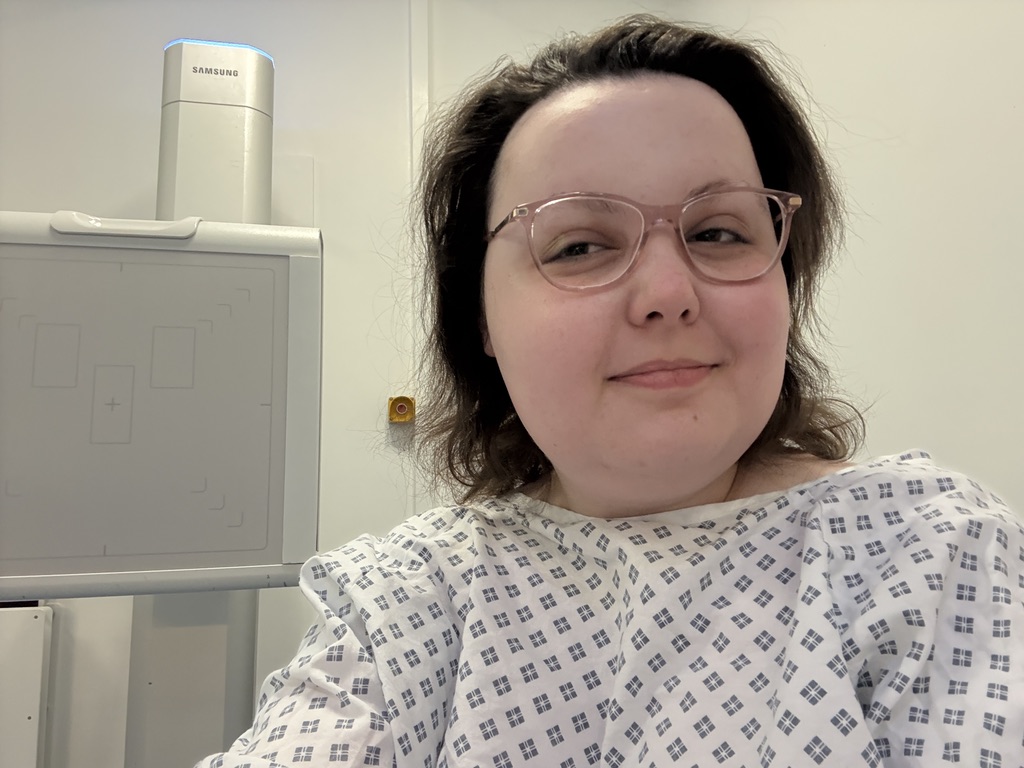Well here we are again… back at square one.
After my previous post, talking about my experience with rheumatology not managing to find a treatment that works with my enteropathic arthritis, I was so hopeful. However, after an initial flurry of appointments and activity on their part, the progress we were making has dropped off. Again.
In March, it was decided that following an anaphylactic reaction to Infliximab, I would be started on Adalimumab – an injection of a similar type of medication that may well have been able to get a grip on my inflammatory arthritis.
I was started on this, but quickly became poorly and noticed that I was having less-severe symptoms of allergy, which were building with each dose. This left it unsafe for me to continue taking it, so it was stopped.
Throughout the period of being introduced and started on Adalimumab, I expressed my concerns over the allergy side of my health issues – by my logic, continuing to infuse my body with things it clearly is struggling to tolerate isn’t a great idea without allergy management. However, I’ve been told repeatedly that ‘it’s fine’ and that it’s basically impossible to get the two departments (rheumatology and allergy) to communicate.
In the meantime, my allergic reactions have been flaring up, made worse by the injections. I have had days where it’s felt like my throat was tight and continuously swelling, times where hives have had my skin crawling… It’s horrible and scary. Thankfully, since stopping the biologics, the spikes of flaring symptoms have seemingly calmed a bit. I have also been seen by the allergy clinic who have massively upped my antihistamine dose, and this has been really helpful. I am frustrated though, because there’s every chance that with the right allergy management in the first place, I wouldn’t have needed to go through that.
Coming back to the rheumatological side of things, I’ve hit what feels like a brick wall. My Cushing’s has gotten so much worse, with the swelling now affecting my whole body. I’m officially double the weight and 5 dress sizes bigger than I was six months ago, which is wild. With no working biologic, I couldn’t keep on taking the high dose of steroids because the side effects are just too horrific, so I have had to taper.
As of this week, I’m down to 10mg per day – I’ve heard very mixed information about at what rate you should drop the medication, but in light of not being able to get hold of anyone in my team, I haven’t been able to find out if I’m doing the right thing.
Essentially unmedicated for the inflammatory issues, they’re rapidly returning. The oh-so-familiar back pain, jaw pain, leg pain, ankle pain… At this point, I’m honestly not sure which is worse for me – the swelling and pain, or the water retention.
A new set of symptoms I developed over the easter bank holiday weekend include swollen legs – something that isn’t typical of Cushing’s as that usually targets only the upper body. When my ankles and legs doubled in size, I did take myself to my GP who agreed something was very wrong. I attempted to contact my rheumatology team to let them know, but couldn’t get through, nor could my GP. He tried to refer me to Southampton A&E for emergency care, but they weren’t accepting patients… So I ended up being seen and admitted at Bournemouth.
Honestly, the last thing I wanted was another hospital involved in my care… However, they were very good and did all the essential urgent tests. The good news – my organs, such as kidneys and bladder, look healthy. The bad news – we couldn’t get to the bottom of what on earth is causing the swelling and pain. They ended up discharging me, with the instruction to contact my rheumatology team to find out if there is any support they can give with the tapering of steroids. They’ve also referred me to endocrinology, as it’s clear that my issues at least in part lie in my poor body not knowing how to cope with my cortisol levels fluctuating while I taper the dose of prednisolone.
Whilst having an ultrasound of my kidneys, it was noticed as a ‘by-the-by’ that my liver is showing signs of inflammation and is fatty – Bournemouth said that this was likely due to my biologic usage. I’m very surprised that Southampton hadn’t realised this.
So, Bournemouth sent me home a week ago. They told me to take Co-Codamol for my arthritis pain and Oramorph for the leg pain from the swelling, to keep an eye on it, and to contact Rheumatology.
It’s been a week of trying to get my team’s attention: phone calls, emails, messaging via the Southampton hospital app… I haven’t heard a thing. I keep getting a message on the phone line to say ‘nobody is available’. My GP has found the same. It’s lonely, it’s nerve-wracking and it’s concerning. How am I meant to navigate this without their support? If they’re sick of me, they can’t even begin to imagine how sick I am of myself and this constant circular conversation surrounding biologics.
I know the hospital is very busy, they have so many patients who take precedence – however, I can’t help but feel like I’m being left to deteriorate. When I tell other medical professionals how long I’ve been left on steroids, what’s happened to me, what things have been missed, I’m met with shocked faces, ‘tuts’, sighs, and looks of real concern. There’s no fast track to fixing my issues, but I need a whole lot more monitoring than I am getting. If there are two things that rheumatology continually seem to be failing at, it’s monitoring my symptoms (hence now having severe Cushing’s syndrome, osteopenia, liver issues, etc.) and communicating with me what is actually happening. It’s my body, yet I’m not listened to, and constantly left in the dark.

To top it all off, each of the times I have been for biologic treatment recently, the nurses have mentioned to me that there’s been trace amounts of blood in my urine dip. They assured me they were keeping an eye on it. However, having been admitted to Bournemouth, I’ve found out that they have not been logging the blood, and that when it lasted more than two weeks it should’ve been investigated. It’s been two months. I now have to have another referral to urology and I’m awaiting a cystoscopy… Hopefully it’s something easy to fix, but I definitely could’ve done with responsive medicine in realising that this was ongoing!
I’m so hoping that the swelling is going to calm down, now that I’m on a lower dose of the steroids – however, as of yet, it hasn’t started to drop. My skin feels so tight, and sore, even splitting in places due to the immense strain it’s under. I feel like an alien in my own body. Rheumatological pain, left untreated, is horrible, but I’m trying to manage that with pain medications. I just don’t know what I am supposed to do.
At my last rheumatology appointment, there was talk of starting me on Upadacitinib tablets – a JAK inhibitor. However, there was much query around this, because as a stoma patient there’s no guarantee it would absorb or work as intended. I was told to expect that the ‘homecare’ team would get in touch and arrange me starting it, but that was over two weeks ago. It feels like we always start on the back foot with new medications, because they never start them when the inflammation is well managed – always when we’re in the midst of a flare.
I’ve also been told 2 different things about the tablet by 2 separate pharmacists in the Southampton rheumatology department – one said that if I see it in my stoma bag, none of it has been absorbed as it has no coating; the other said that it’ll just be the husk that exits (like sweetcorn) and it will have been absorbed.
Overall, I’m left feeling at a total loss to know what to do about rheumatology. I don’t seem to be making any impact and nor do I seem to be receiving proper care, which makes me wonder how many others are in the same position. My physical body has deteriorated so much in the last year from these drugs and their side effects, not to mention the totally unnatural weight gain that’s putting strain on everything. I am so desperate for a medication plan that actually works and to be able to get on with my life.
I know there’s no easy fix to my complex issues. But communication, care, and compassion shouldn’t be optional extras. They should be the foundation of every patient’s experience.
Until that changes, I’ll keep speaking up.










